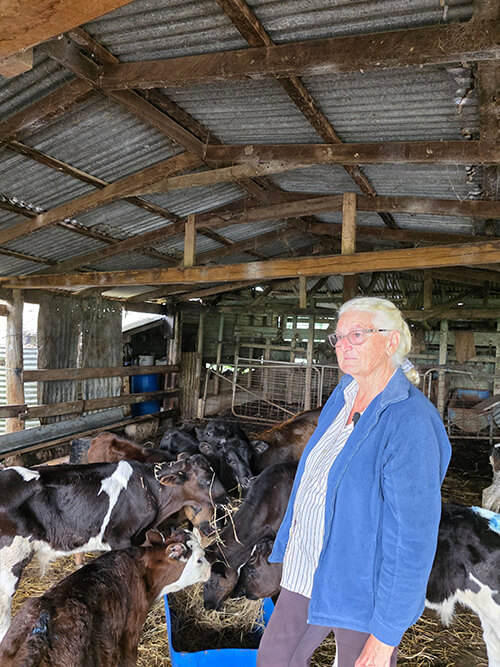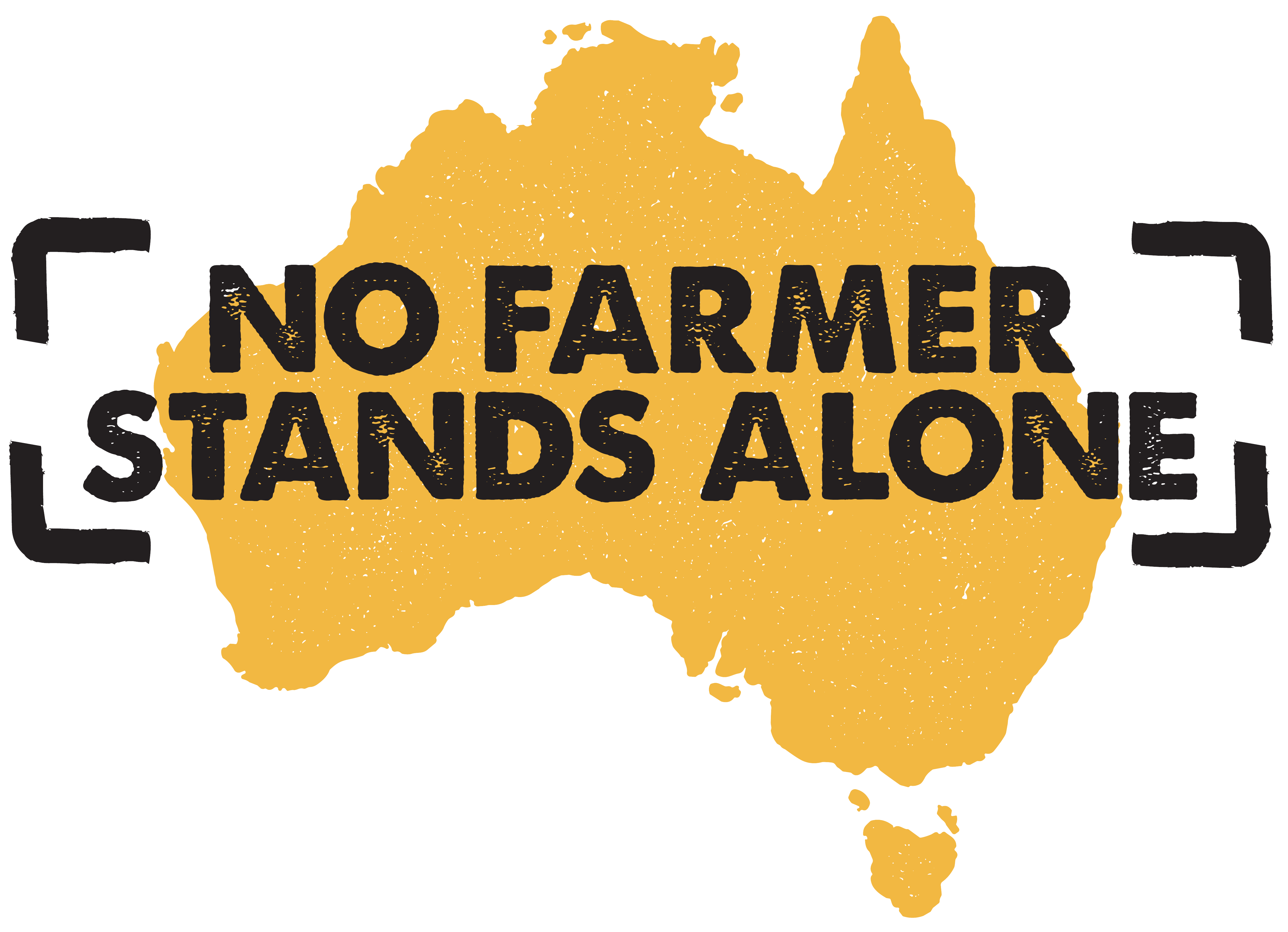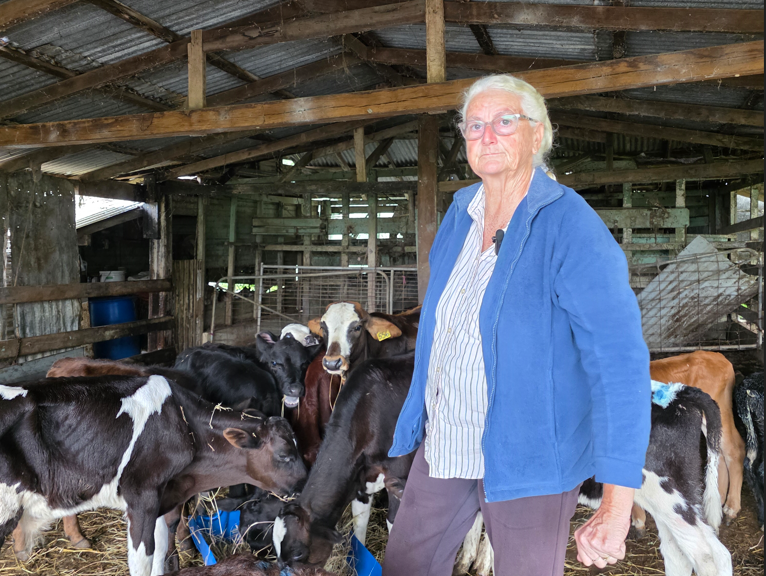Recently we met with Carol Hill at her third-generation family farm in Coraki, where she has lived her whole life. Carol’s story is one of resilience, determination, and the deep connection she has to her land and livestock. As a long-time farmer, she knows the struggles that come with working the land — but it’s her unwavering commitment to her animals, and her community, that continues to drive her.
Carol’s farm is a place where vealers are raised, and her cattle are more than just livestock; they are part of the family. With 500 acres of land, her operations also include fostering orphaned calves, helping neighbours in need. Though these calves may not always be the most profitable, they give Carol purpose — a reason to get up every morning and face the day.
But life on the farm hasn’t been easy for Carol and her husband in recent years. They’ve weathered a series of tough times: drought, devastating fires, and floods. These challenges have taken a toll on her farm, her cattle, and her mental health.
Drought, Fire and Floods

“The drought was really, really bad,” Carol says. “We were down to quite a lot of water shortages and cattle getting stuck in dams and having to pull cattle out, bring them home, nurse them and there were many that didn’t make it.”
Then came the fires. For months, Carol lived with a packed ute, ready to leave at a moment’s notice. The fire front was dangerously close, and the constant threat of a change in wind direction kept her on edge for months. But just when the fires had subsided, the floods came.
“I felt horrible when I walked down through the paddock because you left muddy footsteps, and you knew that if a cow wanted to eat the grass, she couldn’t because it was muddy. It was just terrible.
“We were one of the lucky ones because we brought all our cattle up off the low country, but a lot of people put cattle where they that they’d be safe, and they weren’t, and you just…
“People on properties, they care about their cattle. They’re an extension of their family and when cattle die and will get washed away, it’s devastating.”
Getting support
Through it all, Carol was grateful for the support she received, especially from Rural Aid.
“Their team reached out and checked in on us — not just once, but consistently. That was so important. It made a huge difference.”
“I was really thankful for Rural Aid for reaching out and asking, “Hey Carol, do you need help? Let’s talk about it.” And I think without them, I probably would have gone under.”
“Also, I was so grateful for the hay drops, and the help with money and feed, because we had no income, because we couldn’t get cattle out and prices dropped. It was horrible. So I am really thankful that because of the hay drops and the generosity, I was able to keep my cattle.”
Mental health in rural Australia
Carol’s experience is far from unique. The mental toll on farmers in rural Australia is real, and often goes unnoticed. The pressures of dealing with weather events, financial strain, and the emotional burden of caring for animals in distress can be overwhelming. That’s why Rural Aid’s mental health support is so critical — offering not just practical help, but a listening ear when it’s most needed.
As Carol shares, many farmers are reluctant to reach out for help, especially when they’re overwhelmed by their daily challenges. “You don’t want to admit that you’re struggling,” she says. “Farmers are strong, but sometimes we need support, too. Rural Aid’s approach is different. They come to us, they call us, and they offer a real connection — something that is so much more than just a website or a phone number.”
It’s this kind of personalised care that makes Rural Aid’s services stand out. By making the effort to reach out to farmers, to check in, and to offer assistance, Rural Aid ensures that farmers like Carol don’t have to go it alone.
But there is still more to be done. The ongoing challenges faced by farmers, particularly in rural and isolated areas, mean that support needs to be continuous.
“Without that counselling, that support, there’s going to be a lot more people that fold up inside and feel that they’re the only ones that are carrying the burden, they’re the only ones worrying and it can get a big worry.”
“We need that ongoing support,” Carol emphasises. “Every time a storm brews or the ground turns dry, we’re left wondering — what’s next? Rural Aid’s consistent help and counselling services make a big difference.”

This is where you come in. By donating to Rural Aid, you can help ensure that farmers like Carol continue to receive the support they need. Your contributions help to provide mental health services, financial assistance, and practical help for farmers across Australia.
Every donation makes a difference, whether it’s providing hay, offering financial assistance, or simply letting a farmer know that someone cares. Rural Aid’s work is essential to keeping farmers like Carol going, and with your support, we can make sure they don’t face their challenges alone.
Donate today and make a lasting impact. Visit https://donate.ruralaid.org.au to donate and learn more about how you can help.

